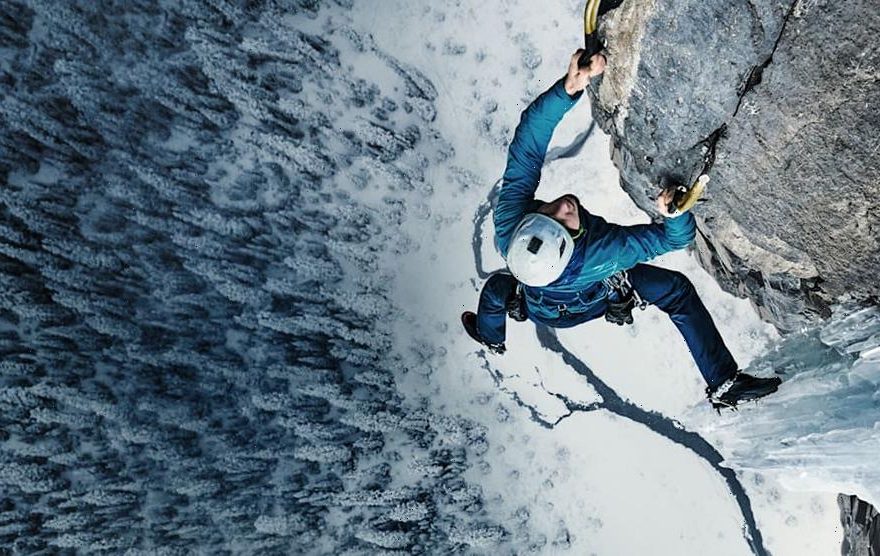Two of the most acclaimed climbing films of the year, Max Lowe’s “Torn” and The Alpinist, from Peter Mortimer and Nick Rosen, have taken big awards at this year’s Kendal Mountain Film Festival, held in the U.K.’s Lake District.
Its hybrid edition proved once more a dazzling showcase of mountain and sports films whose subjects, themes and emotions went far beyond the adrenalin-rush thrills of reportage.
Awards for the festival’s main international film competition were unveiled Saturday night. A further category prize – the People’s Choice Award – awarded to Menna Wakeford “A Woman’s Place,” was announced at the end of the Festival, which wrapped Sunday.
“Torn” won the Festival’s top award, the Grand Prize. Seen at Telluride and directed by photographer and explorer Max Lowe, the feature takes an intimate look at Lowe’s own family, following the discovery of his father’s body on a Himalayan peak, uncovered 17 years after his death. The film penetrates into the death of a man and a father, as well as the motivations and mystery of a high altitude mountaineer. After a gruelling journey to the Himalayas, Lowe is finally able to leave behind a number of emotionally and physical uncertainties.
“Our story of living with trauma and grief is one known well in the world of adventure, but one also known across the entire human experience,” Lowe stated after receiving the Grand Prize.
The Kendal audience looking for mountaineering films at the edge of human capability and beyond were rewarded with this year’s best mountain film which was won by “The Alpinist.”
Whereas most climbers are obliged to attract media attention, sponsorship and publicity, Marc-André Leclerc climbs alone, and away from the spotlight. Yet the accomplishments of this 23 year old Canadian included spectacular and bold solo ascents both in the Alps and South America, attracting the admiration of other elite climbers. Leclerc turned his back on ropes, mobile phones and support crews and was reluctant to let film veteran Redefining what is possible in solo climbing, it is clear that he was true to his own philosophy and was unswayed by the reality of risk and the opinions of others.
“At 23, mountain climbing soloist Marc-André Leclerc was little known, this doc makes him unforgettable,” Variety announced in a review.

Another coveted trophy, the best climbing film award, went to “They/Them,” directed by Blake McCord and Justin Clifton. Whereas the spectacle of advanced climbing in the sandstone canyons of northern Arizona is enough on its own to wow an audience, the filmmakers wanted to portray Lor Sabourin as an individual who explores their motivation and builds resilience in the face of adversity. “They/Them” follows a trans climber, in a quest to embrace their true identity and acknowledge strengths, vulnerabilities and the sense of community that grows out of climbing. This film is preceded by a content warning.
“This year’s stories ask profound questions about not only what being outdoors does for our souls, but equally who owns and ‘belongs’ in outdoor sport and adventure and what the outdoors community can do to make our sports and pastimes truly inclusive,” said jury chair Keme Nzerem, head of screenwriting at the London Film School.
“Freedom Swimmer,” from Olivia Martin-McGuire, won the best creative director award with, like “Torn,” another strong family theme – the story of a father’s swim to freedom in Hong Kong to escape the Cultural Revolution in China.
“Eve,” from Joya Berrow and Lucy Jane, scooped the best environmental film award. In making this film, the directors accessed one of the oldest off-grid communities in the U.K. to tell the story of a 9 year old girl returning to school, finding new friends and values and how these play out with those of her community and its trajectory to embrace environmental activism.
In “After Antarctica,” from Tasha Van Zandt, the best adventure and exploration prize winner, polar explorer Will Steger reflects on his life as an eyewitness to the greatest changes in the polar regions of our planet. After a lifetime of landmark expeditions across both poles, no one alive has seen more of the polar world.
Best sport film, “Stormskater,” from Guen Murroni, turns on Stormskater, a London-based roller-skater, and how she has transformed herself into a professional with ambitions to bring the community together.
The changemaker prize, in slightly similar vein, went to Dominic Gill’s “Soul Deep,” which looks at a climbing gym in Memphis and how it functions as a hub to bring together inner-city African Americans of all levels and talents.
“The Last English Poacher,” from Emma Crome and Peter Emery, snagged best community & culture film. A special judges prize was awarded to Hamid Sardar’s “Horse Tamer,” already a Vancouver Mountain Film Festival winner.

Source: Read Full Article
